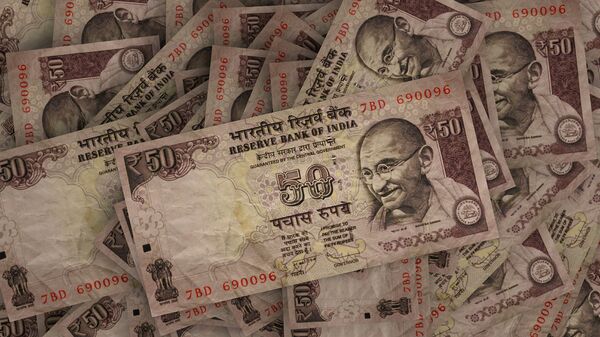The possibilities of a wide direct tax revenue gap ahead of India’s national budget seem to have set a cat among the pigeons. The Indian Income Tax (I-T) department has directed its officials to identify the top 100 cases pertaining to income tax demand and initiate action against them.
The department has also directed its officials to dispose tax scrutiny cases, having potential for revenue, by 31 January. Sleuths have been directed to conduct tax raids and surveys for the purpose of revenue mobilisation.
The decisions in this regard were taken late Wednesday night at a meeting of top tax officials in India’s financial capital, Mumbai.
The Budget tabled by Finance Minister Sitharaman pegged a direct tax revenue collection target for 2019-20 at $188 billion. In the first six months of the financial year between April 2019 and September 2019, the direct tax revenue collection stood at $77.46 billion.
Chances of achieving the direct tax revenue target, touted as steep by experts, further got dimmed with the corporate tax rate cut in last September, accounting for revenue loss of about $21.12 billion in the current financial year.
“Direct taxes grew by only 5.2 percent in the first half of 2019-2020 against a projected growth rate of 18.6 percent set out in the previous year, largely due to economic slowdown”, Former President of the Institute of Chartered Accountants of India (ICAI), Naveen D. Gupta, says.
After the corporate tax cuts, the business houses have not shown enthusiasm for investments or job creation, Gupta adds.
“This year’s direct tax target is unlikely to be achieved due to combined impact of aggressive target, economic slowdown and corporate tax cut”, another former president of ICAI, Ved Jain, says.
An income tax official told Sputnik that the meeting aimed at “GAP analysis and strategies” pertaining to all tax offices in Mumbai, which accounts for at least 30 percent of India’s total direct tax collections.
“The Income Tax department has been asked to compile a list of the top 100 arrear demand cases containing details like action taken in each of them”, says the official on condition of anonymity.
The department has also asked its officials to conduct a “recovery survey”, referred euphemistically to income tax raids. “The surveys will be conducted on cases pertaining to unpaid self-assessment tax, and advance tax among others”, the official says.
Directions have also been given to complete scrutiny assessment cases having potential for revenue “on priority” by 31 January. Scrutiny cases are taken up when the tax department has evidence that the assessee has understated the income to avoid paying up taxes.
Until September 2019, a total of 58,322 cases were identified for scrutiny. India has recently shifted to electronic scrutiny and e-notices have been sent in all these cases.
That said, the story on India’s indirect tax front, too, is one of despair. The Ministry of Finance has set a monthly Goods and Service Tax (GST) target of $17.6 billion in this financial year 2019-20. The target has remained elusive so far, with the collections not touching those levels even once.





